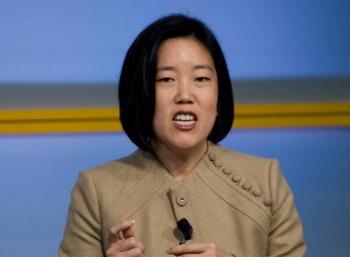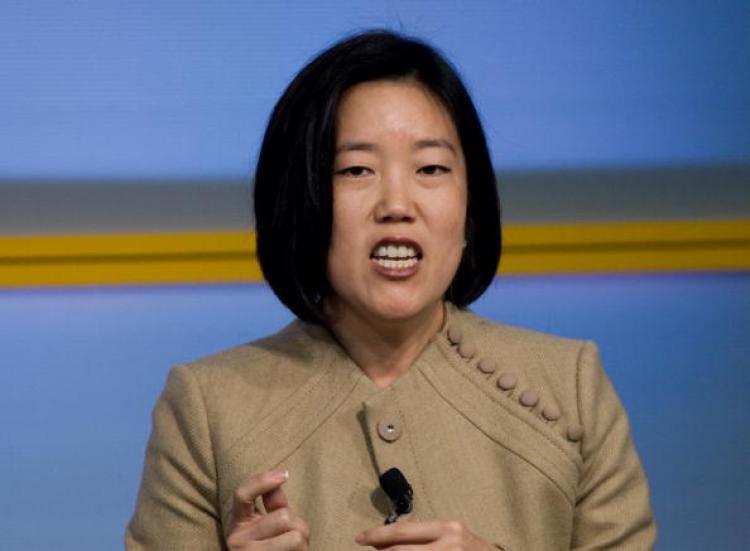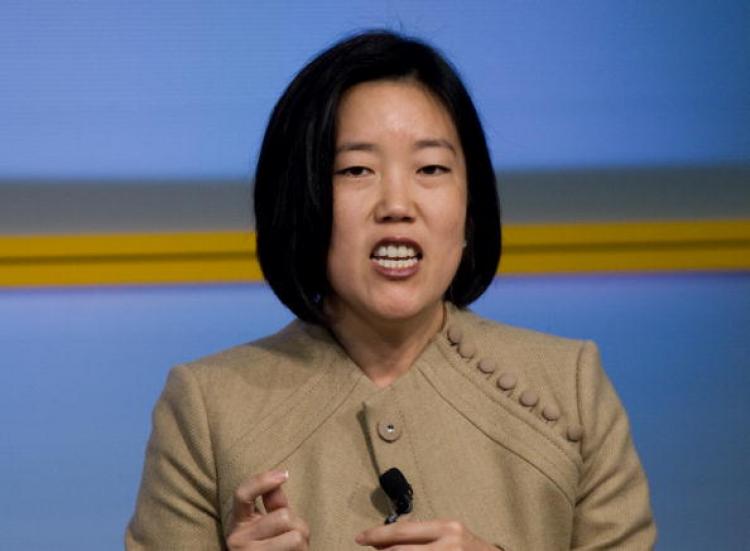Michelle Rhee, the former Washington, D.C., schools chancellor whose work was featured in the nationwide educational system documentary Waiting for Superman, has announced the establishment of “Students First: A movement to transform public education.”
Students First is an advocacy group with the mission of mobilizing teachers, parents, students, and administrators—and any other stakeholders in children’s education—to change educational policy.
Illustrating the need for change, the organization’s website (studentsfirst.org) cites an uncomfortable statistic: more than 67 percent of fourth grade students scored “below proficient” on a national reading test.
Given the failure of American schools to improve, Students First aims to change the system such that the needs of students come before “special interests or wasteful bureaucracies,” according to its website. Hence the name, Students First.
Students First has set forth the considerable goal of recruiting one million members and raising $1 billion.
The movement has four key policy points, as outlined on its website: (1) excellent teachers are the most important aspect of a child’s education, (2) everyone should be able to go to a great school, (3) government funding should go to what works, rather than bureaucracy, and (4) parents, families, and the entire community must be engaged in the effort to improve the educational system.
Rhee, who had run into conflict with teachers’ unions during her tenure in D.C., announced the organization on The Oprah Winfrey Show yesterday, along with a self-authored Newsweek cover story that explains Students First.
Part of the conflict with teachers’ unions stems from Rhee’s view is that the “purpose of the teachers’ union is to protect the privileges, priorities, and pay of their members. And they’re doing a great job of that,” she says in her Newsweek article.
“Go to any public-school-board meeting in the country and you’ll rarely hear the words ‘children,’ ‘students,’ or ‘kids’ uttered,“ she wrote. ”Instead, the focus remains on what jobs, contracts, and departments are getting which cuts, additions, or changes. The rationale for the decisions mostly rests on which grown-ups will be affected, instead of what will benefit or harm children.”
Rhee, as D.C. schools chancellor, shut down poorly performing schools and cut half of the jobs from the area’s central administration. But she says in the Newsweek article that two years later, D.C. schools were leading the country in test scores improvement for fourth and eighth graders.
The teachers’ unions have not favored her methods, saying her conflict-oriented approach goes against the practices of nations with more successful education systems.
American Federation of Teachers leader Randi Weingarten said in a statement that “the leading states and countries in educational outcomes—such as Finland, Singapore, and South Korea—are heavily unionized. They build on what works, such as preparing teachers well, developing robust curriculum, and engaging parents. And they do so through collaboration, not conflict or scapegoating.”
But Rhee doesn’t see the cooperative model as working well enough.
“[We] can’t shy away from conflict,” she says in her Newsweek article. She noted that education has been called the “civil-rights issue of our generation” and that “during the civil-rights movement they didn’t work everything out by sitting down collaboratively and compromising.”
Students First is an advocacy group with the mission of mobilizing teachers, parents, students, and administrators—and any other stakeholders in children’s education—to change educational policy.
Illustrating the need for change, the organization’s website (studentsfirst.org) cites an uncomfortable statistic: more than 67 percent of fourth grade students scored “below proficient” on a national reading test.
Given the failure of American schools to improve, Students First aims to change the system such that the needs of students come before “special interests or wasteful bureaucracies,” according to its website. Hence the name, Students First.
Students First has set forth the considerable goal of recruiting one million members and raising $1 billion.
The movement has four key policy points, as outlined on its website: (1) excellent teachers are the most important aspect of a child’s education, (2) everyone should be able to go to a great school, (3) government funding should go to what works, rather than bureaucracy, and (4) parents, families, and the entire community must be engaged in the effort to improve the educational system.
Rhee, who had run into conflict with teachers’ unions during her tenure in D.C., announced the organization on The Oprah Winfrey Show yesterday, along with a self-authored Newsweek cover story that explains Students First.
Part of the conflict with teachers’ unions stems from Rhee’s view is that the “purpose of the teachers’ union is to protect the privileges, priorities, and pay of their members. And they’re doing a great job of that,” she says in her Newsweek article.
“Go to any public-school-board meeting in the country and you’ll rarely hear the words ‘children,’ ‘students,’ or ‘kids’ uttered,“ she wrote. ”Instead, the focus remains on what jobs, contracts, and departments are getting which cuts, additions, or changes. The rationale for the decisions mostly rests on which grown-ups will be affected, instead of what will benefit or harm children.”
Rhee, as D.C. schools chancellor, shut down poorly performing schools and cut half of the jobs from the area’s central administration. But she says in the Newsweek article that two years later, D.C. schools were leading the country in test scores improvement for fourth and eighth graders.
The teachers’ unions have not favored her methods, saying her conflict-oriented approach goes against the practices of nations with more successful education systems.
American Federation of Teachers leader Randi Weingarten said in a statement that “the leading states and countries in educational outcomes—such as Finland, Singapore, and South Korea—are heavily unionized. They build on what works, such as preparing teachers well, developing robust curriculum, and engaging parents. And they do so through collaboration, not conflict or scapegoating.”
But Rhee doesn’t see the cooperative model as working well enough.
“[We] can’t shy away from conflict,” she says in her Newsweek article. She noted that education has been called the “civil-rights issue of our generation” and that “during the civil-rights movement they didn’t work everything out by sitting down collaboratively and compromising.”






